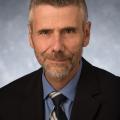Apr 20, 2018
Juan Vazquez calls himself a “spiritual ecologist,” using meditation techniques as part of his work for climate justice where he lives in Montreal. He joined thirty other young, faith-based environmental activists in June on a bus trip to Isle de Jean Charles, Louisiana, and experienced a revelation.
“It really touched me because I’ve been working on climate change for a couple of years already,” Vazquez said.
“It was actually the first time I was visiting a place where I saw the real impact of climate change, not only on the environment, but now on people’s lives. It’s actually closer than we think."
Isle de Jean Charles is a place where the bayou was once so close to impenetrable that it was difficult to float even a narrow canoe through the marshland. Old-timers recall a thickly-wooded island where their fathers trapped mink, muskrat, otters, and raccoons.
David Gauthe of the community organizing group B.I.S.C.O. explained how much has changed. “We’re losing about a football field of land every 38 minutes.”
Reasons for the loss of marshland are numerous: climate change, oil drilling in the Gulf of Mexico, federal projects to control and redirect the natural flow of the Mississippi River. The consequences are so drastic for the roughly one-hundred fifty people who live on Isle de Jean Charles that the U.S. government has authorized $48 million to relocate the community, making them what some are calling the first “climate refugees” in the United States. However, not all are willing to leave their island home.
“The people there were so inspiring,” said Christie Samwaroo, a native of Guyana who was part of the bus tour sponsored the environmental group GreenFaith.
“They’re so willing to fight and remain on the island to preserve their culture and way of living, even though it’s dangerous.”
Rising sea level, which imperils Isle de Jean Charles, is one of the water-related crises that will be explored March 22-24 in the annual theological conference of Trinity Institute, organized by Trinity Church Wall Street. You can register now for Trinity Institute 2017: Water Justice. Join the conference either in New York or at one of the partner sites across the United States and around the world. Hear speakers live from London, Cape Town, Melbourne, and New York and learn some practical tips on what you can do to ensure that you and all your neighbors anywhere in the world have access to safe water and protect those threatened by pollution, flooding, and rising tides.
“Today, although we’re still a smaller voice,” said Juan Vasquez “it’s a voice that’s going to start growing.”


